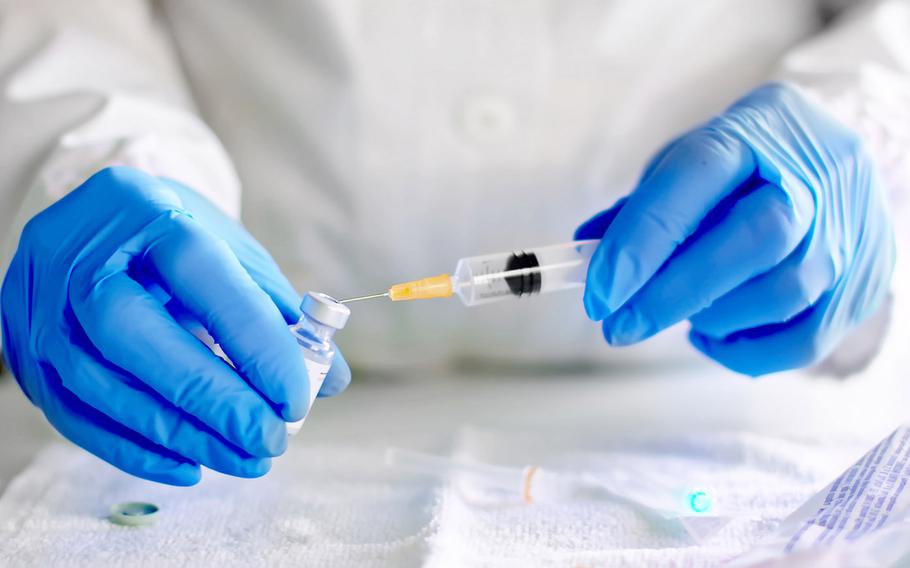
(Getty Images/iStockphoto)
Stars and Stripes is making stories on the coronavirus pandemic available free of charge. See other free reports here. Sign up for our daily coronavirus newsletter here. Please support our journalism with a subscription.
WASHINGTON— The Defense Department is helping to develop and distribute a vaccine for the coronavirus by the end of the year as part of the White House’s Operation Warp Speed, Defense Secretary Mark Esper said Friday.
The White House program is a public-private partnership meant to accelerate the development, manufacturing, and distribution of vaccines, therapeutics, and medical countermeasures for the coronavirus, according to the Pentagon. Several government agencies are involved in the program, including Health and Human Services, the Energy Department, and the Department of Veterans Affairs.
The aim is to have a “substantial quantities of a safe and effective vaccine” ready for Americans by January 2021.
“We will win this fight,” Esper said about the Defense Department’s role during a news conference at the White House. “We will deliver on time, bringing … to bear the full weight of the Department of Defense, all of our first-class, world-class researchers and scientists, our ability to manage logistics at scale, and our great distributional capabilities.”
Once a vaccine or therapy is ready, the Defense Department will be able to distribute it faster than if only private medical infrastructure was used, according to the Pentagon statement.
Gen. Gustave Perna, the commander of the U.S. Army Materiel Command, has been appointed as the program’s chief operating officer. The Pentagon has also identified five subject-matter experts to lead the department’s support in the areas of diagnostics, therapeutics, vaccines, production and distribution, and security and assistance.
Andrew Kilianski is a chief intelligence officer for chemical, biological, radiological, and nuclear defense and he will lead the security and assistance area, according to the Pentagon. Jonathan Hoffman, the chief Pentagon spokesman, said Friday that an intelligence officer is necessary for the program to protect the research information.
“I think we've seen reports of efforts by adversaries to muck with our research and development. And that runs risks of having information manipulated or corrupted,” he said, without naming China.
The other DoD lead subject-matter experts are: Maj. Gen. Lee Payne, the assistant director for combat support at the Defense Health Agency; Sean Biggerstaff, acting director for research and development at DHA; Matt Hepburn, joint project lead for CBRN Defense Enabling Biotechnologies, and Stacy Cummings, the principal deputy assistant secretary of defense for acquisition enablers.
Hoffman defended Esper’s confidence and optimism that the vaccine can be delivered by the end of the year, saying the goal has been set and there is no reason to doubt the success of government, industry, the private sector and research institutions working together.
Esper and President Donald Trump “are saying is that we have a goal, we've got the team together, we've committed to putting the resources to it. And we're going to attain that goal,” Hoffman said.
Kenney.Caitlin@stripes.com Twitter: @caitlinmkenney